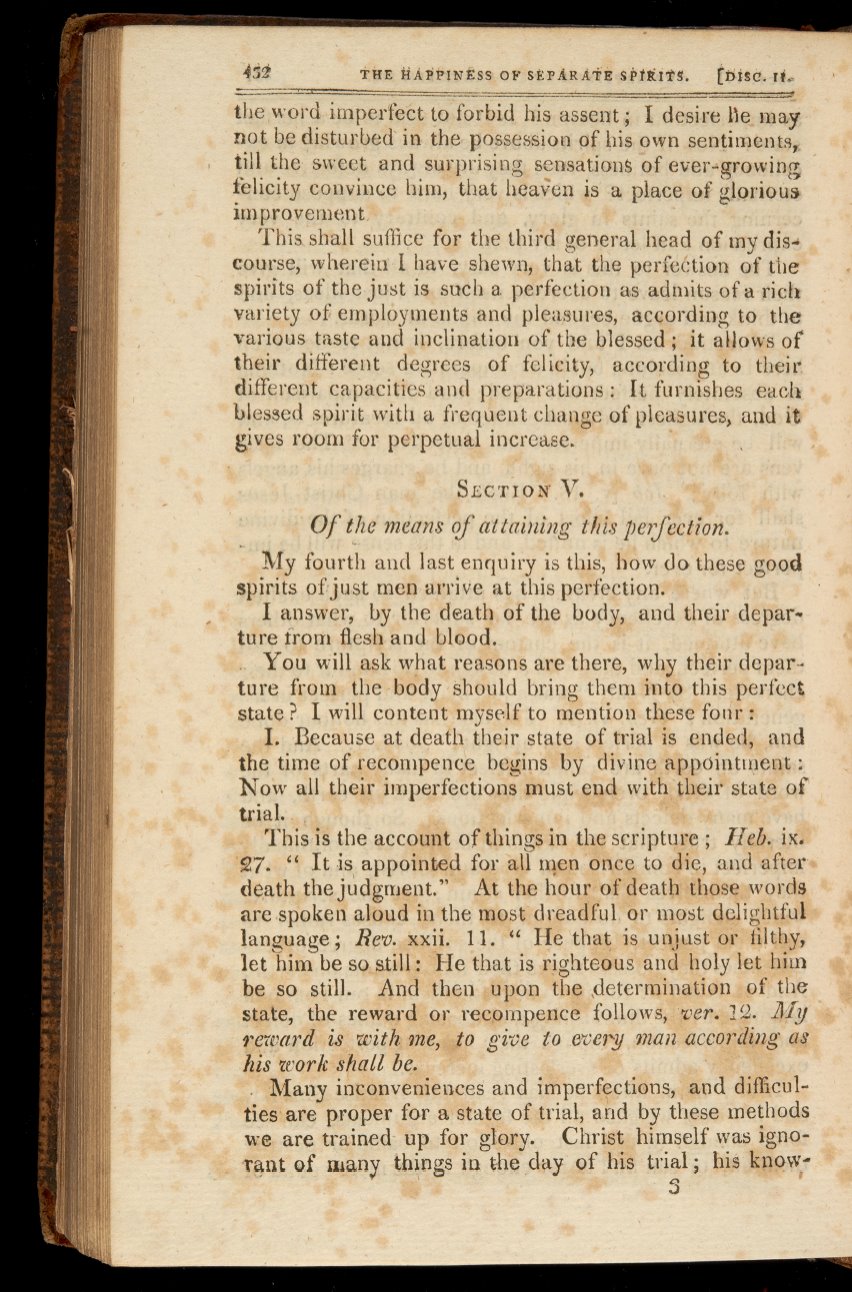

i
THE tiAPPINESS
OF
SEPARATE SPtÁITH.
CDÍSC.
rt,
the
word
imperfect
to forbid
his
assent;
I
desire
be
may
not
be
disturbed' in
the possession of
his
own
sentiments,
till
the
sweet
and surprising
sensations
of
ever
-
growing
felicity convince
him,
that
heaven
is
a
place
of
glorious
improvement.
This.
shall
suffice
for
the
third
general. head
of
my
dis-
course, wherein
I
have
shewn,
that
the perfection
of
the
spirits
of
the
just
is
such a
perfection
as
admits
of
a
rich
variety
of
employments and pleasures, according
to
the
various taste
and
inclination
of
the blessed
;
it
allows
of
their different
degrees
of
felicity,
according
to
their
different capacities and
preparations
:
It
furnishes
each
blessed
spirit
with a
frequent
change
of
pleasures, and
it
gives
room
for
perpetual
increase.
SECTION
V.
Of
the
means
of
attaining
this perfection.
My fourth and last enquiry
is this, how
do
these good
spirits
ofjust
men
arrive
at
this perfection.
I
answer,
by
the
death of
the
body,
and their depar-
ture
from
flesh
and blood.
You
will
ask
what reasons are there,
why
their depar-
ture
from the body should bring them
into
this
perfect
state
?
I
will
content
myself
to
mention these four
:
I.
Because
at death their state of
trial
is
ended,
and
the
time
of
recompence
begins by divine
appointment
:
Now
all
their imperfections must end
with
their state
of
trial.
This
is
the
account
of
things
in
the
scripture
;
lieb.
ix.
'27.
"
It
is
appointed
for
all men
once to die,
and after
death
the
judgment."
At
the
hour
of
death
those words
are
spoken
aloud
in
the most
dreadful or
most delightful
language;
Rev.
xxii.
11.
"
He
that
is
unjust
or
filthy,
let
him be
so
still: He
that
is
righteous and
holy
let
him
be
so still.
And then upon the ,determination
of the
state, the reward
or recompence
follows,
vier. 12.
My
reward
is
with
me,
to
give
to every man
according
as
his work
shall
be.
.
Many
inconveniences and imperfections,
and
difficul-
ties are
proper
for
a state of
trial,
arid by
these methods
we
are trained
up for
glory.
Christ
himself
was
igno-
rant
of
many things
in the
day
of
his
trial
;
his
know,-
J

















